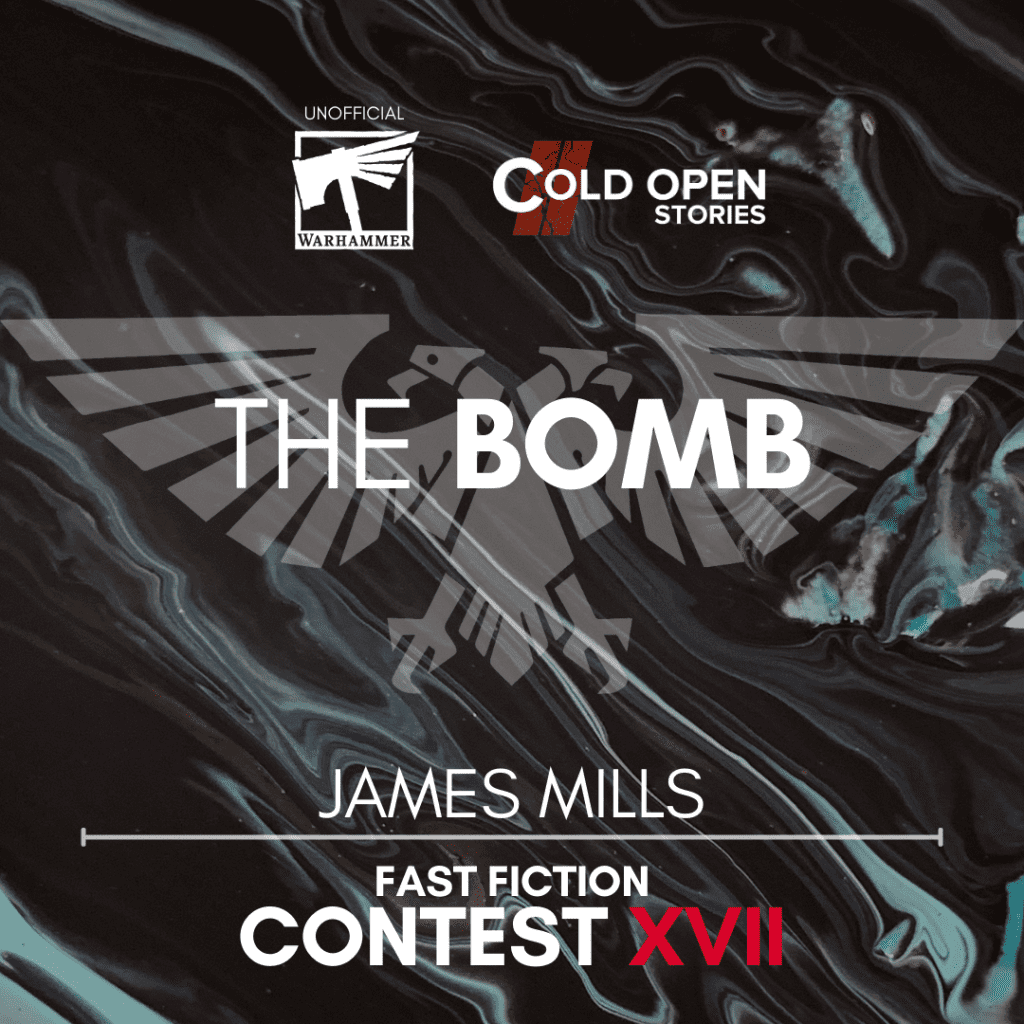Tick.
The rail lines are colour-coded for convenience. White, blue, red – manufactorum, administratum, and if one was to imagine this Hive to be a vast body, then these veins pulsing with maglevs are the jugulum. It’s six of the clock, shift change, and the civic heartbeat quickens. Is there a word for what it means to feel alone, even when pressed into the flesh of a hundred thousand fellow travellers?
Better find it fast. There’s not much time left.
Tick.
There’s a history here, of course. Everything has a history. Everything comes from somewhere. Nothing happens for no reason, though it’s more comforting in the aftermath to suggest as much.
‘There was nothing we could do.’ ‘How could we have known?’ ‘It was an accident.’ But there is no such thing as an accident, either. A body scanner finally breaking down, unmaintained for too long, never high enough on the priority lists sent to the tech priests. The impossible situation thrust upon the poorly-paid gate controller: shut a whole boarding station down, choke those vital veins, and face somebody else’s consequences?
He waved them through. The series of reports by a committed Arbites investigator on the rising possibility of an attack on the vulnerable maglev network, buried under towering stacks of all the others.
Nothing happens in isolation. No act is ever truly alone.
Tick.
There is a woman on the train. Behind her patched-together eyeglasses is a blue-grey abyss, a drowning pool flecked with bloodshot red. In the battered carryall – there is a name stencilled there, illegible from years of long, hard use – slung over her shoulder is the bomb. She wears her uniform well. Beyond the windows, statues of black basalt bearing the empty visage of the God-Emperor stare into an equally-empty heaven. All is as she remembers it. All is right with the world.
A man catches a glimpse of her face in a flash of neon signage. His mouth opens, then shuts. He resolves, at that moment, that work be damned – he’s off at the next stop if it kills him.
Tick.
Her hand is on the box when the man departs at the station. The steady, measured rhythm calms her nerves. It reminds her of the beat of a lasrifle on the line: controlled fire. She has been afraid before. She has faced fire, and death, and worse, and she has been afraid, so afraid that it still wakes her in the night. Never has it been this bad. Her greatest fear is losing that control – her greatest desire is to give it up, to surrender.
Did he see her? Did he notice? Will he report her to the relevant authorities? Should she turn back? This mission will not succeed without the element of surprise. She half-turns to ask the opinion of her squadmates, but no: they are not here. There is no counsel to be had but the turning of gears and the steady tightening of springs.
Tick.
Camphor Station is the busiest on all the incoming tracks. It branches into several separate, smaller lines that furnish the ring of barracks and bunkers that protect Central Command. A fist around the Hive’s throat. The cafes, hostels and wide arcades are what cloak that murderous gauntlet in velvet. A civilian veneer belied by military custom.
This is where the bomb is to be deployed.
Tick.
As the woman exits the maglev, as the last chime rings, she sees a weathered placard – not the too-bright neon that pierces the perpetual half-light, but old, hand-drawn advertising. What goods are promised is not exactly clear, but it’s the byline that catches her eye: ‘The greatest gift one can give is that of time.’
She remembers that, too, from the day she mustered out. Ten long years ago. Someone had pointed it out to her and they’d both laughed, ribbed, jostled to be first on the departing train.
Tick.
A real blast from the past.
Ah ha ha.
Tick.
There were more of them, then. A regiment’s worth, off to fight the evils that lived out in the stars then back home as warriors, heroes, victors. That had been the promise. The only part of it that had been kept was the return, and then, only to a handful. They had left in a fleet. They had come back on a single transport. No parades. No glory. Not even a notice on the vid-screen tickers. Who was left to remember, after all?
She did. The world beyond the Hive had changed her, but she remembered. Now she had brought change back with her, in a ticking box.
Tick.
Up the stairs. Strange looks from fresh-faced recruits. Hurried now.
Almost there. Almost time.
Tick.
Two at a time.
Tick.
Familiar faces. Familiar uniforms.
Tick.
She pulls the box from the carryall.
Tick.
She presses the button.
Ti-
-me stops.
See here the tableau. See the woman with grey-green eyes, the box in her hands opening like a flower. See the shock on the face of the one in the middle of the group – the squad – each wearing the same marks on their shoulders as the woman herself. Regimental scratch, with honour pins and that most vaunted of Imperial decorations: not the campaign eagle, nor the Star of Terra, but the far more subdued mark of an honourable return, the home-front analogue to the Right of Conquest.
See the shock turn to delight as the timepiece’s diamond matrix catches the light. See the delight tinge with fond memory. She remembers the placard, too. She remembers a decade of service, together, of courage and a promise made but never thought to be fulfilled.
She does not drown in the abyss. She fills it – completes it. How could she not?
There will be the detonation of back-slapping, and an explosion of congratulations later, but for now, this universe is large enough for only two.
Let us leave it in their capable hands.

About the Author
James is a long-suffering tech-priest from Hive Victoria, Australia. Between performing the Ritual of Cycled Power and adjusting for noospheric interference, he has found some small measure of peace in creative writing. Ave Omnissiah!


